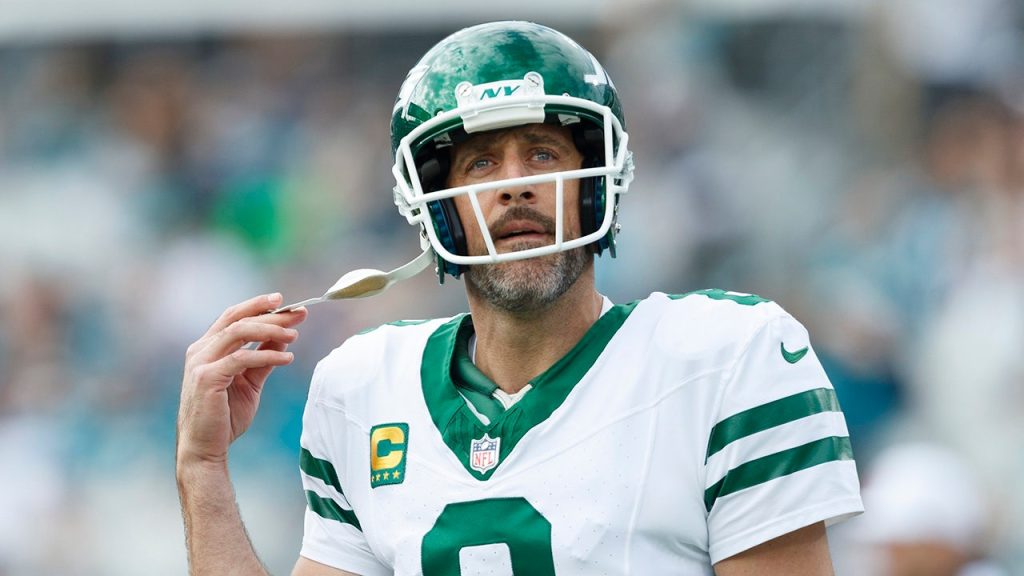Aaron Rodgers, the renowned quarterback for the New York Jets, offered a glimpse into his political inclinations in the Netflix docuseries “Enigma,” revealing a journey from youthful curiosity to disillusionment and a recent rekindling of political interest. His exploration began with the assassination of John F. Kennedy, an event that spurred him to question official narratives and delve into the complexities of political power. This early fascination evolved during his time at the University of California, Berkeley, a politically charged environment that challenged his conservative upbringing and further solidified his interest in the political landscape.
Rodgers’ path to political engagement was not a linear one. He expressed a deep-seated cynicism towards the two-party system, viewing it as a façade for a singular power structure driven by money. This disillusionment led to a period of political apathy, a feeling of hopelessness that persisted until Robert F. Kennedy Jr.’s presidential candidacy reignited his interest. This renewed engagement culminated in a surprising offer – the opportunity to serve as Kennedy’s running mate.
The prospect of joining Kennedy’s campaign presented Rodgers with a significant life decision: retire from football and embark on a political career, or continue playing the game he loved. Ultimately, the allure of the gridiron and a desire to leave the sport on his own terms prevailed. Rodgers chose to remain with the Jets, driven by a sense of unfinished business and a passion for football that overshadowed the potential appeal of a political life.
This decision, however, was not without its controversies. The possibility of Rodgers entering the political arena brought with it intense scrutiny, including allegations that he had propagated conspiracy theories about the Sandy Hook Elementary School shooting. Rodgers vehemently denied these claims, expressing his dismay at being misrepresented and highlighting the emotional toll such accusations take. This incident underscored the potential pitfalls of public figures venturing into the often-turbulent waters of political discourse.
Rodgers’ political leanings, while previously kept largely private, became a subject of public discussion following his association with Kennedy. This brought into focus the complexities of navigating political engagement for public figures, particularly in a highly polarized climate. The docuseries provided a platform for Rodgers to address these complexities, offering insights into his evolving political views and the challenges of balancing personal beliefs with public perception.
The episode of “Enigma” dedicated to Rodgers’ political considerations served as more than just a glimpse into the quarterback’s personal beliefs. It highlighted the delicate balance between personal conviction and public image, the potential consequences of expressing dissenting views, and the challenges of engaging with political discourse in a media landscape often characterized by misinformation and misrepresentation. Rodgers’ experience serves as a case study in the complexities of political engagement for public figures, demonstrating the potential for both scrutiny and distortion. His story underscores the importance of critical thinking, independent research, and careful consideration of the narratives presented in the public sphere.

